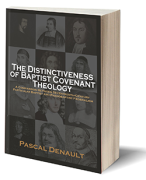Archive
Purification
Lord Jesus, I sin. Grant that I may never cease grieving because of it, never be content with myself, never think I can reach a point of perfection. Kill my envy, command my tongue, trample down self. Give me grace to be holy, kind, gentle, pure, peaceable, to live for Thee and not for self, to copy Thy words, acts, spirit, to be transformed into Thy likeness, to be consecrated wholly to Thee, to live entirely to Thy glory.
Deliver me from attachment to things unclean, from wrong associations, from the predominance of evil passions, from the sugar of sin as well as its gap; that with selfloathing, deep contrition, earnest heart searching I may come to Thee, cast myself on Thee, trust in Thee, cry to Thee, be delivered by Thee.
O God, the Eternal All, help me to know that all things are shadows, but Thou art substance, all things are quicksands, but Thou art mountain, all things are shifting, but Thou art anchor, all things are ignorance, but Thou art wisdom.
If my life is to be a crucible amid burning heat, so be it, but do Thou sit at the furnace mouth to watch the ore that nothing be lost. If I sin wilfully, grievously, tormentedly, in grace take away my mourning and give me music; remove my sackcloth and clothe me with beauty; still my sighs and fill my mouth with song, then give me summer weather as a Christian.
Taken from The Valley of Vision: A Collection of Puritan Prayers & Devotions, edited by Arthur Bennett. Reformatted by Eternal Life Ministries.
The purification theory about baptism
 Chapter 7-2: Baptizo – Classical and Biblical.
Chapter 7-2: Baptizo – Classical and Biblical.
But another class of persons endeavor to go deeper, not relying upon the opinions of others. They say, grant that the classical use of baptizo is as the lexicons mentioned teach, that it always means immerse, and kindred ideas; yet the Biblical use is very different, for in the Bible it certainly sometimes means sprinkle or pour. The attempt is made to show this from various passages; really, it seems that so many are tried because it is felt that none of them are exactly conclusive. I should be glad to go over all that have been thus appealed to, but time does not allow that, and I can only mention those which are most frequently relied on, or which seem most plausible.
2. There is the purification theory, put forward by Dr. Edward Beecher and others. In John 3:22-25, we are told that Jesus was baptizing (through his disciples); next, that John also was baptizing, for he was not yet cast into prison; and then it is added: “Then there arose a question between some of John’s disciples and the Jews about purifying.” From this it is argued that the word baptize is synonymous with purify. Now baptizing was certainly a very striking form of purification. The fact that baptism was going on might very naturally lead to a discussion between some of John’s disciples and “a Jew” (the correct text) about the general subject of purification and the relation of this to other purifications. Being a peculiar, remarkable, and novel purification, it was perfectly natural that baptism should lead to discussion of the general subject. But why in the world are we to say that the terms baptism and purification are synonymous, that baptism means nothing more definite than purification, and that any form of purification might be called a baptism? Suppose a murder has occurred, and leads some persons into discussion concerning death, are we to conclude that the terms murder and death are synonymous and that any form of death may be called a murder? Yet because the occurrence of baptism led to a discussion concerning purification, we are told that these terms are synonymous and that any form of purification is a baptism. Now upon this assumption rests Dr. Beecher’s theory – a huge inverted pyramid resting upon a single point, and that point a mere assumption and one in itself unwarrantable and unreasonable.
John A. Broadus-Immersion Essential to Christian Baptism












Recent Comments